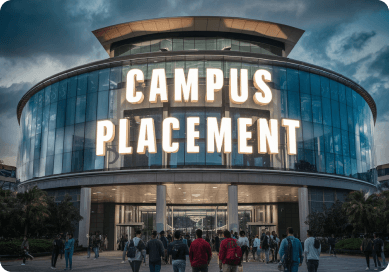Enter OTP



Angers, France

Angers, France

Cost Of Living

Undergraduate Fees International Students

Post Graduate Fees International Students

The University of Angers stands out for its rich legacy, having been established in 1337, and its strong academic reputation in France and beyond. It consistently ranks among the top universities, including 728th globally and 39th nationally in 2018–2019. Its focus on research is evident through initiatives like the Quasav Federative Research Structure, which leads cutting-edge plant health and sustainability research. The university also earned recognition as the 2nd best student town by L’Etudiant, adding to its appeal for young scholars. With a perfect balance of tradition, innovation, and student-centered infrastructure, it offers a truly enriching environment. These factors together make it a top choice for both domestic and international students.
The University of Angers offers modern, student-friendly infrastructure spread across multiple campuses in and around the city. Its facilities include well-equipped lecture halls, high-speed Wi-Fi, multimedia libraries, and dedicated research labs. Students benefit from cutting-edge scientific equipment, innovation hubs, and collaborative learning spaces. The university’s botanical garden and green areas make the environment refreshing and peaceful. There are also on-campus cafeterias, sports facilities, and housing options that promote a balanced student life. Everything is designed to support both academic focus and personal wellbeing.
Student life at the University of Angers is vibrant, diverse, and full of opportunities to explore beyond the classroom. With over 100 student associations, there’s something for everyone—from arts and culture to tech, sports, and social causes. The campuses regularly host concerts, film screenings, food festivals, and debates that keep the atmosphere buzzing. Students also benefit from access to top-notch sports facilities and clubs that promote physical activity and team spirit. International exchange programs and language cafés create a global, inclusive vibe. Whether you’re into activism, entrepreneurship, or just want to have fun, the student life here keeps you engaged and inspired.


The University of Angers offers robust career services through its SUIO-IP (Service Universitaire d’Information, d’Orientation et d’Insertion Professionnelle). Students have access to personalized career counseling, including CV and cover letter workshops, interview preparation, and job search strategies. The university's IP'Oline platform provides a centralized hub for internship and job listings, facilitating connections between students and potential employers. Additionally, the IAE Angers School of Management offers a dedicated Career Center, Job Teaser, which gives students access to a wide range of job, internship, and apprenticeship opportunities, as well as company presentations and career events. For international students, the International Welcome Office assists with non-academic administrative formalities, ensuring a smooth transition into the local job market. These comprehensive services aim to enhance employability and support students in their career development.
The below information is required while
completing the university application :
Core admission requirements for Bachelor’s (Licence) programs at the University of Angers—especially for international applicants:
High School Diploma or Equivalent
You need to hold a recognized secondary school certificate (Baccalauréat or equivalent) from your home country. Your academic record should reflect rigor in subjects related to your chosen field of study.
Academic Transcripts
Submit official transcripts of your high school grades (and any post-secondary coursework). Those completing studies during application must provide mid-term results, followed later by final transcripts.
Language Proficiency
For?French-taught degrees: proof of French proficiency (DELF B2 level or higher, or TCF/TEF equivalent).
For?English-taught programs (rare at undergraduate level): IELTS, TOEFL, or equivalent may be required.
Fluency matters—classes, exams, and projects rely heavily on language skills.
Personal Statement or Letter of Motivation
A short essay (typically 300–500 words) explaining your academic interests, reasons for choosing the University of Angers, and long-term objectives. This shows your commitment and alignment with the program.
Letters of Recommendation
At least one (sometimes two) recommendation letters from your teachers or school counselor is often required—speaking to your academic ability, maturity, and potential to succeed in higher education.
CV/Resume and Supplemental Materials
A clear CV outlining extracurricular activities, internships, or volunteer work can strengthen your application. Some programs may also ask for a portfolio (e.g. in arts, design, architecture) or completed prerequisite coursework.
Know more
The University of Angers recruits actively across its five campuses, offering roles in teaching, research, and administration. With over 1,000 faculty members and nearly as many administrative staff, it’s one of the largest employers in the Maine-et-Loire region. Recruitment is structured and transparent, following European standards that prioritize merit and equal opportunity. Each year, the university rolls out fixed-term and permanent roles, especially for researchers and lecturers. On-campus hiring events are also organized, including student-friendly drives like walk-in recruitments without CVs. The overall approach ensures a steady inflow of talent while supporting both academic excellence and operational strength.



The University of Angers earns recognition on several fronts—ranked 728 globally and 39 nationally in the 2018–2019 cycle, it consistently ranks among France’s top institutions. It was honored as the second-best student town by L’Etudiant, reflecting its vibrant campus life and student appeal. Its Quasav research structure, launched in 2008, drives major advances in sustainable plant health and agricultural quality in the Pays de la Loire region. Across disciplines, faculty and students contribute to publications, inventions, and regional development. Its impact extends beyond rankings to tangible benefits in agriculture, environment, and student satisfaction. In short, Angers combines academic prestige and community recognition into a compelling achievement profile.


In 2021, the University of Angers expanded its role in digital learning within the French-speaking world by launching innovative online courses and MOOCs. Partnering with the Francophone University Agency (AUF), it focused on accessible education for students in Africa, Southeast Asia, and the Caribbean. These programs addressed areas like health education, sustainable development, and digital skills. By using open-source platforms and multilingual content, the university broke barriers to education. This achievement reflects Angers' growing global footprint and its commitment to democratizing knowledge across borders
By 2020, the University of Angers had become the third-largest employer in the Maine-et-Loire region with over 4,000 staff members, including teaching, research, and administrative roles. This isn’t just a statistical achievement—it reflects the university’s role in the economic and social fabric of the region. Through local partnerships, training programs, and internship opportunities, the university contributes to workforce development. It also supports community projects, civic engagement, and lifelong learning. Its employment policies—especially inclusive hiring and career progression—have been praised for supporting gender equality and work-life balance.
In 2019, U.S. News & World Report ranked the University of Angers at #324 in its list of the Best Global Universities in Europe. This global recognition highlighted Angers’ academic influence beyond France, especially in areas like health sciences, plant biology, and social science. The university’s consistent research output and partnerships with international institutions played a major role in securing this spot. Being listed among Europe’s top 400 universities gave the institution visibility among potential international students and researchers, reinforcing its position in the global academic landscape.
In the 2018–2019 cycle, the University of Angers ranked 39th among all French universities according to national ranking metrics. This achievement recognized the institution’s growing academic reputation, research outputs, faculty qualifications, and student satisfaction. The ranking considered various performance indicators, including international collaboration, publication frequency, and innovation metrics. Climbing national rankings helped the university attract better faculty, gain funding, and expand its international network. It also validated the strategic planning efforts made over the previous decade in curriculum reform, infrastructure development, and research support.
In 2018, L’Etudiant magazine ranked Angers the second-best student town in France—a recognition deeply tied to the University of Angers. The award took into account affordability, quality of education, cultural offerings, and overall student experience. The university’s five green campuses, vibrant academic life, support systems, and city integration made it stand out. The recognition reflected years of effort in making higher education accessible and enjoyable. This boosted its reputation across France and played a key role in increasing international student applications. For both domestic and global learners, this cemented Angers as a top education hub.
In 2017, the University of Angers earned the “HR Excellence in Research” badge from the European Commission. This distinction is granted to institutions that meet high standards in researcher recruitment, professional development, and ethical practices. It recognizes the university’s commitment to transparent, fair, and merit-based hiring. The badge also reflects Angers’ alignment with the European Charter for Researchers and the Code of Conduct. This helped boost international collaboration, attracted top research talent, and improved its standing in EU-funded projects. It remains a mark of trust and credibility for scholars across Europe.
Since 2015, the University of Angers has invested heavily in multidisciplinary research labs that connect fields like law, humanities, health, engineering, and environmental sciences. These labs promote cross-pollination of ideas—where a legal scholar might work with a plant biologist, or a sociologist collaborates with a tech expert. This has led to several joint publications, funded grants, and region-wide collaborations. The aim was not just academic excellence but real-world solutions to problems like climate change, public health, and digital literacy. The model became a blueprint for other universities in the region.
In 2011, the university launched the SFR ICAT (Institut de Recherche en Santé), focusing on translational health research. This unit bridges biology, pharmacy, and medical sciences, fostering cutting-edge discoveries in areas such as cardiovascular diseases, cancer, and regenerative medicine. The aim was to fast-track lab discoveries into clinical solutions. With advanced labs and interdisciplinary teams, ICAT put Angers on the national research map. The center has since secured multiple grants and collaborative projects with hospitals, biotech firms, and other European universities. Its impact goes beyond academia, directly improving healthcare systems and treatments in the region
In 2008, the University of Angers launched the Quasav Federative Research Structure, uniting leading experts in plant health, pathology, and agricultural innovation. This initiative marked a turning point for sustainable development research in the Pays de la Loire region. The structure brought together researchers from different labs to collaborate on crop protection, food security, and ecological practices. It aimed to study the life cycle of plants and their environment to prevent disease and increase food quality. Over the years, Quasav became a regional pillar for green innovation and received national recognition for its interdisciplinary scientific contributions.
Over the last two decades, the University of Angers transformed its physical spaces into green, sustainable campuses focused on student wellbeing. Spanning Angers, Cholet, and Saumur, each site integrates eco-conscious architecture, botanical gardens, green rooftops, and social spaces. This wasn’t just environmental branding—it created a calm, welcoming atmosphere that boosted learning outcomes and mental health. The inclusion of meditation zones, libraries, and recreation areas set a benchmark in holistic campus design. These efforts also tied into local and national climate goals, showing the university’s alignment with larger sustainability movements.
The University of Angers is deeply invested in innovation and high-impact research, especially in areas tied to sustainable development and health. One of its major initiatives is the Quasav Federative Research Structure, which unites top regional experts to study plant health and the quality of plant-based products. The university’s research spans across disciplines, integrating cutting-edge technology and real-world application. Faculty and students collaborate on projects that drive both academic knowledge and societal progress. Innovation is not just encouraged but built into the ecosystem through labs, training centers, and industry partnerships. This strong research culture positions the university as a leader in scientific exploration and meaningful inventions.









Embark on your educational journey with confidence! Our team of admission experts is here to guide you through the process. Book a free session now to receive personalized advice, assistance with applications, and insights into your dream school. Whether you're applying to college, graduate school, or specialized programs, we're here to help you succeed.
